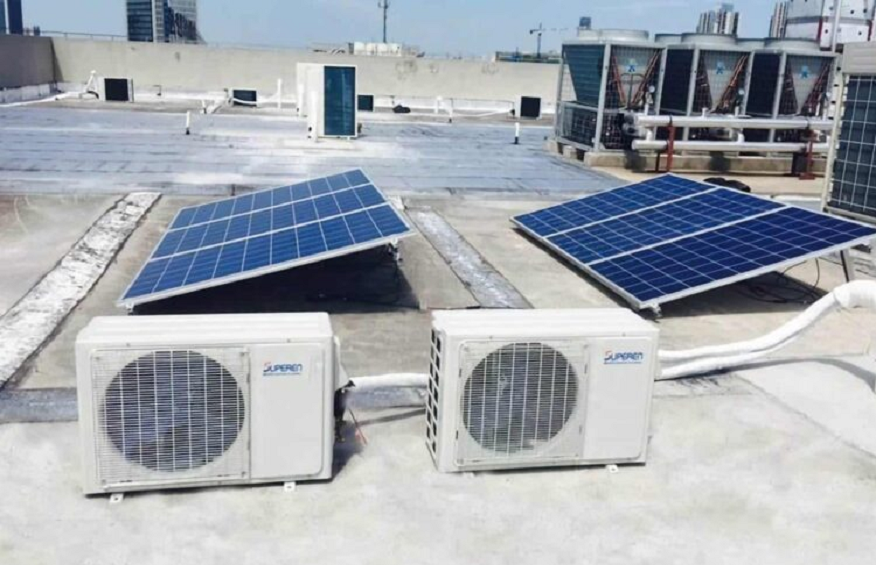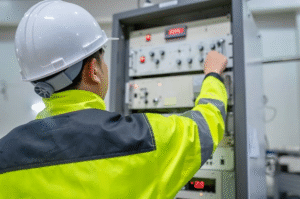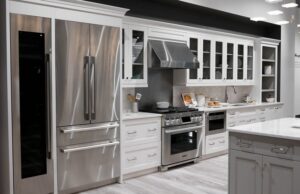The Role of Insulation in Enhancing Solar-Powered Air Conditioning

Solar-powered air conditioning is an energy-efficient and sustainable solution for cooling homes and buildings. However, to maximize the benefits of solar-powered AC systems, proper insulation plays a crucial role. Insulation not only helps to maintain comfortable indoor temperatures but also enhances the efficiency and performance of solar-powered air conditioning. In this article, we will explore the importance of insulation in enhancing solar-powered air conditioning systems, highlighting its role in energy savings, thermal comfort, and overall system performance.
Energy Efficiency and Reduced Cooling Demand:
Insulation acts as a barrier to heat transfer, reducing the flow of heat into or out of a building. In the context of solar-powered air conditioning, insulation plays a vital role in minimizing heat gain during hot weather. By effectively insulating the building envelope, including walls, roofs, and floors, heat transfer from the outside is significantly reduced. This, in turn, reduces the cooling demand on the solar-powered AC system, allowing it to operate more efficiently and effectively. Proper insulation ensures that the cool air generated by the system is retained inside the building, minimizing the need for continuous cooling, and improving overall energy efficiency.
Enhanced Thermal Comfort:
Insulation also contributes to thermal comfort by maintaining stable indoor temperatures. In hot climates, insulation prevents the transfer of outdoor heat to the interior, keeping the indoor environment cooler and more comfortable. Conversely, in colder climates, insulation helps to retain heat inside, minimizing heat loss and providing a comfortable living or working environment. By reducing temperature fluctuations and creating a more stable indoor climate, insulation complements the efforts of solar-powered air conditioning systems, allowing them to work more efficiently and deliver optimal comfort to occupants.
Minimized Energy Loss and Increased Performance:
Well-insulated buildings help to minimize energy loss, enabling solar-powered air conditioning systems to perform at their best. Insulation prevents conditioned air from escaping through walls, ceilings, or floors, ensuring that the cool air produced by the AC system remains inside the building. This reduces the workload on the air conditioning system, leading to improved performance, energy savings, and lower operational costs. By reducing energy loss, insulation allows the solar-powered AC system to operate more efficiently and effectively, ensuring that the cooling power is utilized where it is needed most.
Synergy with Solar-Powered Air Conditioning:
Insulation and solar-powered air conditioning systems work hand in hand to maximize energy efficiency and overall performance. Solar-powered AC systems generate electricity from the sun’s energy, and effective insulation helps to minimize heat gain or loss, optimizing the cooling load on the system. The combination of solar power and insulation creates a sustainable and efficient cooling solution, reducing energy consumption and providing long-term cost savings. By incorporating insulation into the building envelope design, the full potential of solar-powered air conditioning can be realized, resulting in a more comfortable and environmentally friendly living or working environment.
Insulation plays a crucial role in enhancing the efficiency and performance of solar-powered air conditioning systems. By effectively minimizing heat gain or loss, insulation helps to reduce the cooling load on the system, improving energy efficiency and overall performance. Insulated buildings retain cool air, providing thermal comfort and reducing the need for continuous cooling. The combination of insulation and solar-powered air conditioning creates a sustainable and efficient cooling solution, resulting in energy savings, reduced environmental impact, and improved comfort for occupants. When considering solar-powered air conditioning, investing in proper insulation is essential to fully optimize the benefits and enhance the overall performance of the system.
What are solar panels?
They are composed of multiple solar cells made of semiconductor materials, typically silicon. When sunlight strikes these cells, it excites the electrons within, causing them to move and create an electric current. The current flows through the cells and is collected by wiring to generate direct current (DC) electricity. Solar panels come in various sizes and configurations and can be installed on rooftops or in open areas to capture sunlight and harness its energy.
How do solar panels work?
Solar panels operate through a process called the photovoltaic effect. When photons from sunlight hit the solar cells, they transfer energy to the electrons in the semiconductor material. This energy allows the electrons to break free from their atoms, creating a flow of electricity. The electric field within the solar cells helps to separate the electrons and guide them along the path of the electrical circuit. The electric current produced by the solar cells is in the form of DC electricity, which can be converted into alternating current (AC) electricity through an inverter. AC electricity is the type of electricity used in most homes and businesses.
The pros and cons of a solar panel system: Pros:
1. Renewable Energy: Solar panels harness the sun’s energy, which is a renewable and virtually limitless source. By using solar power, you reduce reliance on fossil fuels and contribute to a cleaner environment.
2. Energy Savings: Solar panels can significantly reduce or eliminate your electricity bills. Once installed, they generate electricity for free, allowing you to offset your energy consumption from the grid.
3. Low Maintenance: Solar panels require minimal maintenance. Regular cleaning and occasional inspections are usually sufficient to keep them operating efficiently.
4. Long-Term Investment: While there is an upfront cost to install solar panels, they are a long-term investment. Over time, the savings on electricity bills can offset the initial expenses, resulting in financial benefits.
Cons:
1. Initial Cost: The upfront cost of installing solar panels can be a barrier for some homeowners. However, prices have been decreasing, and there are financing options and incentives available to make solar more affordable.
2. Weather Dependence: Solar panels rely on sunlight to generate electricity. Their efficiency can be affected by factors like shading, weather conditions, and the angle and orientation of the panels.
3. Space Requirement: Solar panels require sufficient space for installation. If you have limited roof space or live in an area with shading issues, it may impact the potential energy production of the system.
What is battery storage?
Battery storage is a technology that allows you to store excess electricity generated by your solar panels for later use. It involves using rechargeable batteries to store surplus energy during periods of high solar production. This stored energy can then be used when solar production is low, such as during nighttime or cloudy days. Battery storage systems provide a way to maximize the self-consumption of solar energy, increase energy independence, and provide backup power during grid outages.
Would I benefit from Battery Storage?
Whether or not you would benefit from battery storage depends on various factors. If you have a solar panel system and experience time-of-use electricity rates or have unreliable grid power, battery storage can help optimize your energy usage and reduce reliance on the grid. Battery storage allows you to utilize the stored energy during peak-demand periods when electricity rates are higher or during power outages, providing backup power for critical loads. However, the decision to invest in battery storage depends on factors such as your energy consumption patterns, local utility policies, and the cost of batteries relative to your energy savings goals.
Cost of solar panel systems:
The cost of a solar panel system can vary depending on factors such as system size, quality of panels, installation complexity, and regional pricing. As of the current market trends, a typical solar panel system without battery storage can range from €5,000 to €15,000 or more, depending on the system size and quality. This estimate includes the cost of solar panels, inverter, installation, and necessary equipment.
The cost of a battery storage system will vary depending on the capacity and brand. Battery storage systems typically range from €3,000 to €10,000 or more, depending on the storage capacity. It’s important to note that the cost of battery storage has been decreasing as technology advances and becomes more widely adopted.
To get an accurate cost estimate for your specific situation, it is recommended to consult with solar panel installation companies or contractors. They can assess your energy needs, evaluate your property’s suitability, and provide you with customized quotes based on your requirements and preferences. Additionally, be sure to research potential government incentives, tax credits, or rebates available in your area, as they can significantly offset the overall cost of installing a solar panel system with or without battery storage.
Solar Power: Your Solution to Efficient Air Conditioning
Looking for the best Air Conditioning Marbella Spain has to offer? Then look no further. Allow us to introduce you to the world of solar-powered air conditioning—a cutting-edge solution that leverages solar energy to efficiently cool your home, all while drastically reducing your energy bills. With solar panels, you can transform Marbella’s abundant sunlight from a challenge into an asset that works for your comfort.
Solar-powered air conditioning isn’t just about embracing new technology; it’s a practical and sustainable response to Marbella’s sunny weather conditions. The system works by placing solar panels on your roof, which capture and convert sunlight into electricity, powering your air conditioning system. The process is highly efficient during the hottest parts of the day when your air conditioning demand peaks, providing an effective cooling solution that aligns perfectly with your needs.
Beyond the cost savings, using solar energy for your air conditioning contributes to a reduced carbon footprint, aligning with global efforts towards environmental sustainability. In an era where green living is more important than ever, opting for solar-powered air conditioning is a major step towards a more eco-friendly lifestyle. In your quest for the best air conditioning Marbella has to offer, consider the power of the sun. Solar-powered air conditioning provides efficient cooling, substantial cost savings, and a greener future. Are you ready to let the sun keep your home cool and comfortable? Step into the future of air conditioning and make a change that benefits both you and the planet.






